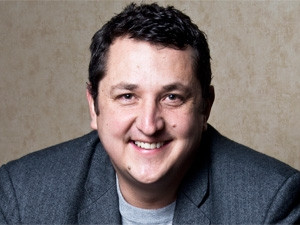
A panel discussion on the Internet of things (IOT) in African markets at AfricaCom this morning saw representatives from an Internet search engine giant, two prominent telcos, an automotive manufacturer, and an m-health player all coming together to discuss how the world is becoming ever more connected.
The fact that such a diverse group of businesses were represented on the panel illustrates exactly what the IOT is all about, the panel agreed.
Just this week, Gartner forecast 4.9 billion "connected things" would be in use come 2015 - a reality that will have an impact on all businesses, regardless of industry.
In terms of adoption, Tony Smallwood, executive head of M2M and vertical industries at Vodacom, noted the kind of ecosystem needed to support this innovation needs to be addressed at a vertical level - spanning solutions across networks, health, auto and security, among others.
The IOT is about alternative business models, noted Brett St Clair, enterprise country manager at Google. "But it is still early days in Africa. Progress in this area in Africa will be driven on the back of improvements in access. Devices and plans need to get more advanced. We need to see a greater adoption of cloud, which must be in place in order to deal with the amount of data that these things will generate," he said, adding that the next 18-months will be an interesting time both globally and across Africa.
According to Arnauld Blondet, VP of product and innovations marketing at the Orange Group, Africa really is at the beginning of the connected devices lifecycle but the potential is there.
Highlighting how BMW's Connected Drive functionality is a product of this interconnected device landscape, Edward Makwana, group automotive communication manager for BMW South Africa, noted the smart technology currently available in BMWs has been 40 years in the making. Now the digital environment is right to support this kind of driving experience, he commented. "This ecosystem is about ensuring that all of our services are available, all the time, regardless of location and the IOT allows us to offer this to our customers."
When speaking about the IOT from a health perspective, Simon de Haan, chief engineer at the Praekelt Foundation, noted the primary benefit of this improved connectivity is information sharing and education. He cited the Praekelt Foundation's Mobile Alliance for Maternal Action, which delivers vital health information to new and expectant mothers via their mobile phones, as an example of this.
These technological advancements have the potential to improve service delivery and the seamless communication of important information, which has the potential to change the daily lives of ordinary people in many regions, stated Smallwood.
"Anything can become a connected device. The conversation now is around what is already connected and what else can be connected," concluded Blondet. "If you have a connected toothbrush, you can tell if your kids brushed their teeth. The IOT really does have so many useful, and funny, real life applications."
Share